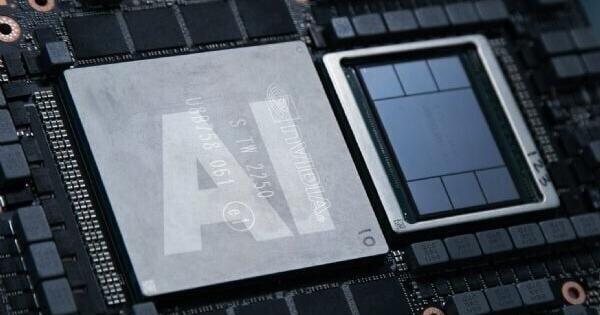The AI Chip Revolution: How Generative AI is Transforming the Semiconductor Landscape
TAIPEI, Oct. 7, 2024 – The global surge in generative AI is ushering in a seismic shift in the semiconductor industry, with new opportunities springing forth like never before. DIGITIMES Research has published its latest AI Chips Special Report, detailing how the training and inference of generative AI models hinge on massive computing power. As a result, AI chips are becoming the indispensable backbone of both advanced hardware and software applications, whether in sprawling cloud data centers or compact edge devices concerned about privacy.
The Cloud vs. Edge: A Splendid Tug-of-War
Cloud computing continues to spearhead the generative AI movement, fueled by cutting-edge wafer foundries that enhance processing capabilities and expand packaging technologies. According to analyst Stella Weng, the demand for high-performance graphics processing units (GPUs) in cloud environments is predicted to grow at an astounding compound annual growth rate (CAGR) of 44% from 2023 to 2028. Furthermore, cloud ASIC (Application-Specific Integrated Circuit) accelerators are expected to see exponential growth, boasting a staggering CAGR of 52%.
Yet, as reliance on these technologies increases, a noteworthy transition is looming. Weng suggests that between 2022 and 2024 will prove vital for the rise of cloud AI accelerators, before potentially plateauing as focus shifts toward replacing existing infrastructure.
Wafer Foundries on Overdrive
In light of this surging demand for cloud and edge AI chips, wafer foundries find themselves in a race to ramp up advanced manufacturing capabilities. Analyst Eric Chen has forecasted that the expansion of advanced processes at or below 5 nanometers will grow at a CAGR of 23% over the next few years. TSMC (Taiwan Semiconductor Manufacturing Company), for instance, plays a pivotal role, with its CoWoS (Chip on Wafer on Substrate) technology expected to expand at a remarkable CAGR exceeding 50% in the same period.
To further optimize performance for AI chips, wafer foundries are implementing diverse advancements, such as innovative transistor designs and sophisticated back-end power delivery methods. Such technological enhancements promise to meet the escalating demand for speedy and efficient AI hardware.
AI Goes Portable: The Rise of AI-Enabled Smartphones and PCs
As generative AI applications migrate from the cloud to personal devices, smart technology is seeing revolutionary advancements. DIGITIMES Research anticipates a boom in the production of AI smartphone application processors (APs)—with a staggering prediction of 260 million units shipped in 2024, potentially soaring to 800 million by 2028. This projected growth highlights an impressive CAGR of 65%, with 240 million AI smartphones expected to be shipped by next year alone.
In the realm of PCs, analyst Joyce Chen notes that hardware and software developers are enthusiastically entering the AI PC market. By 2025, improved processors designed for PCs will enhance computational capabilities while lowering power consumption. With Microsoft’s push toward Windows updates and Copilot products, the AI PC segment is poised for a significant boost. Projections suggest that AI PC processor shipments could skyrocket to nearly 50 million units in 2024, eventually reaching 150 million units by 2028.
Future Outlook: Opportunities Abound
The rapid incorporation of AI technologies is not just expanding existing markets but is reshaping current technological demands as well. This transition promises to intensify competition within the semiconductor arena and ignite unprecedented changes throughout the industry.
For deeper insights into the generative AI landscape and its implications for cloud and edge computing, we invite you to delve into our AI Chip Special Report. Here, you’ll find comprehensive information about supply chain developments, technological milestones, and emerging AI hardware, sprinkled with valuable market analyses.
Conclusion: Join the AI Revolution
As we stand at the crossroads of innovation, the semiconductor industry’s evolution in response to generative AI is an exciting chapter for tech enthusiasts. The AI Buzz Hub team is excited to see where these breakthroughs take us. Want to stay in the loop on all things AI? Subscribe to our newsletter or share this article with your fellow enthusiasts.




